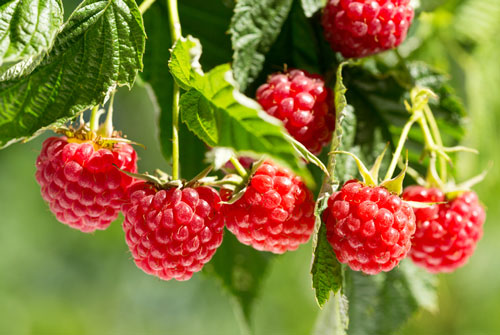People with blood sugar issues are often told by mainstream doctors not to eat fruit. It’s feared that the sugar content contributes to blood sugar spikes.
But a new study shows that one fruit may actually hold the key to preventing and treating diabetes.
Researchers at the Illinois Institute of Technology recruited 32 subjects who were overweight or obese. All had insulin resistance and were prediabetic.[i]
The subjects were given breakfast each morning for three days. The meals were the same except for the amount of red raspberries.
The first breakfast had no raspberries. The second had one cup of raspberries. The third contained two cups of the fruit.
The researchers found that the more raspberries the subjects ate, the more their glucose levels dipped and the less insulin their bodies needed.
The study was led by Dr. Britt Burton-Freeman. She noted that red raspberries are different from other fruits because they are low in sugar and high in essential micronutrients. And they also have “components such as anthocyanins, which give them their red color, ellagitannins, and fibers that have anti-diabetic actions,” Dr. Burton-Freeman said.[ii]
Eating red raspberries can be “an important strategy” for slowing or reversing the course of the disease, she said.
The 3 Critical Active Ingredients in Red Raspberries
As the study showed, eating at least a cup of red raspberries a day helps control blood sugar. The study used frozen raspberries. But fresh raspberries have a similar nutritional profile.
You can also get the critical active
ingredients in supplement form: fiber,
ellagitannins, and anthocyanins. All are readily available
from online retailers and in health stores.
Editor’s Note: Looking for more ways to tame your blood sugar? Learn how you can reverse diabetes in as little as 12 weeks.
No expensive pills, grueling exercise, or needle-jabbing insulin treatments required. Go HERE now to discover all the details.
Related Articles
One Vitamin Stops Diabetes
Never Take This Blood Sugar Drug
Is This Forgotten Mineral the Key to Better Blood Sugar?
[i]https://app.peer.us/papers/public/5c66cb85f8280fcd0febc5e81a440520
[ii]https://www.eurekalert.org/pub_releases/2019-02/iiot-nss022519.php

